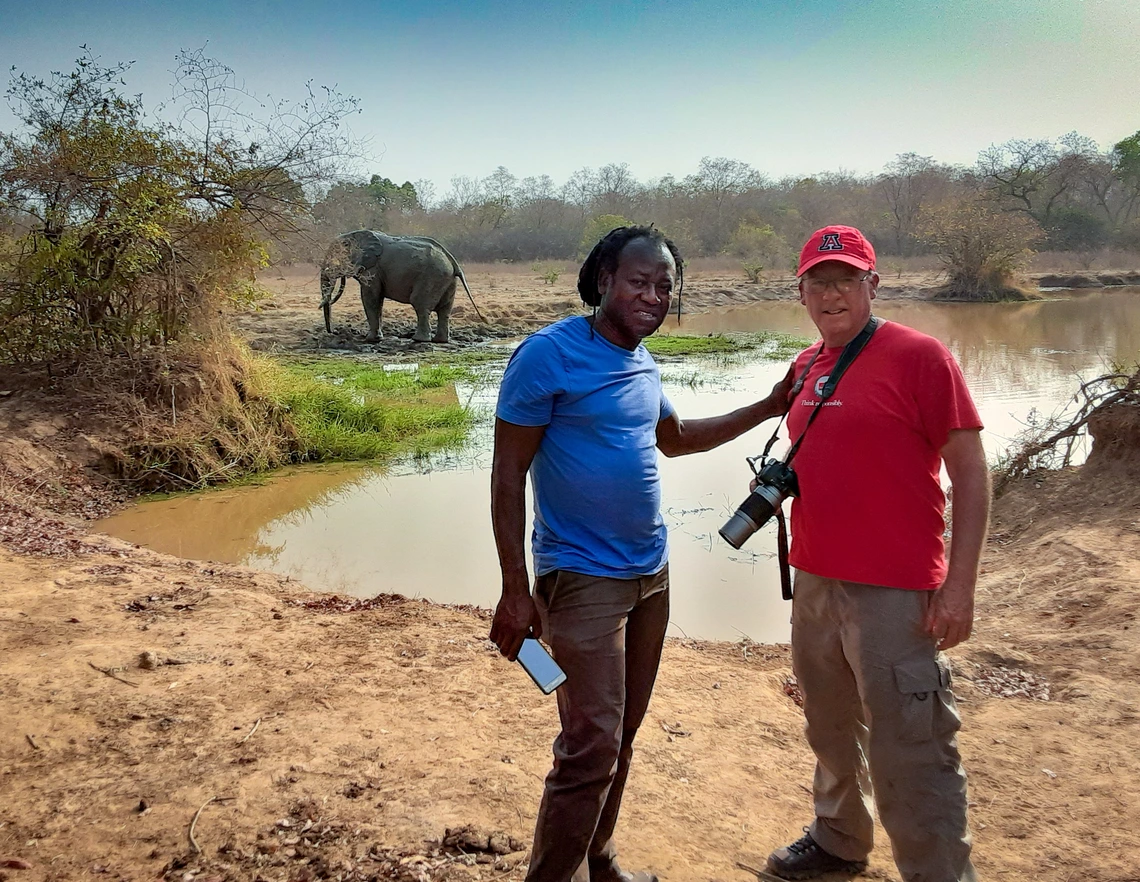HRTS Partner Spotlight: World Institute of Africa Culture and Traditions (WIACT)

Rashid Iddrisu with Human Rights Practice MA student Peter Donaldson in Ghana
This blogpost is part of a series focusing on partner organizations of the Human Rights Practice Program.
Under the leadership of Prof. Mette Brogden, the Human Rights Practice Program has forged close ties with the World Institute of Africa Culture and Traditions (WIACT) in Ghana. Prof. Brogden is an international advisor to WIACT and conducts extensive research in northern Ghana. WIACT founder Rashid Iddrisu regularly gives lectures in our courses and a number of our students have conducted fieldwork in Ghana in association with WIACT. Current or former students have written about this work on our blog including Jessica Nwafor and Kayla Mitchell.
Below are some excerpts about the work of WIACT, and you can read more on their website.
"WIACT offers opportunities for African peoples to stabilize within their cultural identities and heritage. By learning about their traditions, young people are discovering opportunities right where they are in Africa…so they do not decide to risk the expensive journey to Europe or elsewhere through dangerous migration corridors.
We foster sustainable development that builds from what people know and have available in their local regions. And what they know and have…is their cultural heritage, the land and available resources of Nature, and their languages.
Movement is necessary for life: All species, including humans, have the right to move. When African people want to visit the world and seek global opportunities, they can do so through trade, sharing their cultural traditions and values, and visiting their friends, family, and colleagues across the world. African cultures matter because they offer solutions to our age."
**************************
"WIACT's objectives are:
• We honor our elders because their wisdom empowers next generation. We document the traditional knowledge that our elders possess about how to survive and help them pass their knowledge to future generations.
• We help our young people learn marketable skills and develop pride in their heritage, enabling them to resist the lure of Europe and participate instead in the great regional renaissance that is emerging across Africa.
• We help local people make use of their own available natural and cultural resources to develop new livelihood strategies, taking advantage of new international niche markets.
• We provide opportunities for cultural exchange, hosting people from other countries in our communities, arranging tours, cultural experiences, and volunteer opportunities.
• We share the music and dance traditions of diverse ethnic groups to promote peace. Drumming brings people together.
• We sponsor research and dissemination of indigenous languages and knowledge. We can host researchers and scholars who want to do fieldwork related to our mission."
You can more on the website of the World Institute of Africa Culture and Traditions (WIACT).

